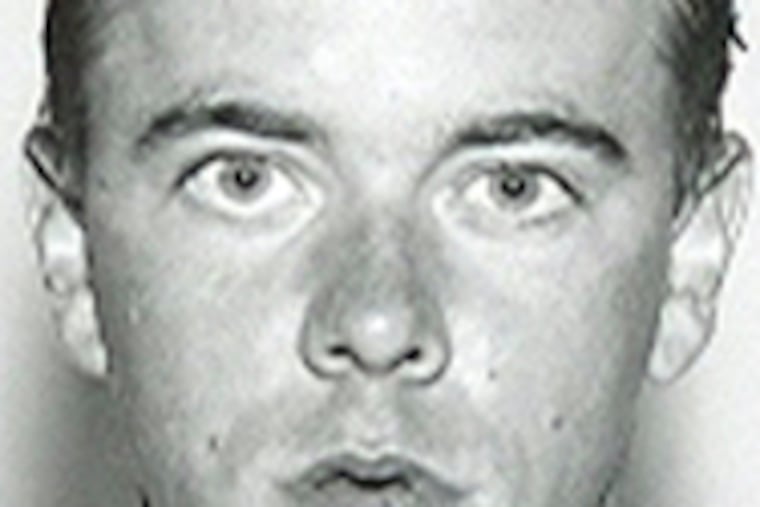Murder case turns on 41-year diagnosis
Did a 1966 shot cause an officer’s death? A medical fight looms.

The murder case of William J. Barnes in the death of Philadelphia Police Officer Walter T. Barclay is already shaping up not as a typical criminal prosecution but as a potential battle of medical experts.
In announcing yesterday that her office would try Barnes on a murder charge, District Attorney Lynne M. Abraham said prosecutors believed they could prove an "unbroken chain" of events between the shooting that paralyzed Barclay in 1966 and his death last month at age 64 of a urinary-tract infection.
The fact that Barnes served time for the shooting, and assertions that he reformed his life in recent years, did not remove the onus on prosecutors to bring the murder charge, Abraham said.
"The law is that when you set in motion a chain of events, a perpetrator of a crime is responsible for every single thing that flows from that chain of events - no matter how distant - as long as we can prove the chain is unbroken," she said.
But, barring a plea deal, it will be a different sort of murder trial, Abraham and lawyers said, with the central issue likely to be that chain and its links.
"My sense tells me and my experience tells me that this may not be an issue of who did what to whom," Abraham said. "My sense is that this is going to be a case of medical causation, with various experts weighing in on one side or the other."
Prosecutors have tried similar murder cases in which victims died years after they were wounded, but "not to the extent of 40 years," said Ed McCann, Abraham's homicide chief.
The district attorney stressed that her decision had not been influenced by the fact that Barclay was a police officer wounded on duty.
"We wanted everybody to know that we feel it is not just a matter of expediency or something that people pushed me into doing because it was an officer," Abraham said.
What mattered, she said, was that "for the Barclay family, this is justice at last."
Pressing the case also acknowledges that Barclay endured "intractable, continuous, ceaseless and horrible pain" for the rest of his life, Abraham said.
Barclay's family welcomed the decision.
"Barnes walked out of prison. My brother never had the opportunity to walk after he was shot," William Barclay said.
Defense lawyer Jeffrey Linda, a former federal prosecutor, said, "This is really going to be a medical case."
"The question is going to be whether the commonwealth can prove beyond a reasonable doubt that the infection from which the former officer died is related to the shooting - and the relationship has to be substantial," he said.
Linda said the defense could seek to show that while paralysis was a factor in urinary infections, "intervening factors" can cause such an infection "and then make it so severe you die."
Frank DeSimone, a prominent local defense lawyer and a former homicide prosecutor, said the defense would have to show that the infection could have "happened anyway to anybody."
JoAnne A. Epps, a law professor at Temple University and a former assistant U.S. attorney, said the lapse in time would pose a challenge to the prosecution.
"The interesting issue is whether the jury will be convinced that the shooting is the direct cause of the death," she said. "In 41 years, there are lots of things that intervene - nutrition, environment, just to name a couple."
The case has attracted national attention, and on Saturday a Washington Post editorial urged Abraham not to prosecute. It called the prosecution "an unnecessary kind of moral double jeopardy," a phrase echoed by Allen Hornblum, a criminal-justice professor at Temple and a Barnes supporter.
Barclay was shot Nov. 27, 1966, when he and another officer interrupted a predawn burglary at a beauty shop in East Oak Lane. One bullet pierced his spine and paralyzed him.
Barnes was arrested, convicted, and sentenced by Judge Herbert Levin to 10 to 20 years in prison for the shooting and related offenses. The state Department of Corrections said Barnes had served all 20 years, but Abraham said yesterday that Barnes had served 15 years of a 71/2- to 15-year sentence for the shooting of Barclay.
Altogether, she said, Barnes has spent 48 of his 71 years behind bars, at the end undergoing what he described as a transformation that turned him away from a life of crime.
The case was revived Aug. 19, when Barclay died at a hospital in Bucks County and the county coroner ruled the death a homicide.
Abraham said that the coroner had not performed an autopsy, but that Philadelphia's acting medical examiner, Ian Hood, had examined the medical records as part of the investigation.
"He advised us that in his medical opinion, Officer Barclay died as a result of long-standing, continuous injury and pain and infection from the initial gunshots of 41 years ago," she said.
First Deputy Police Commissioner Patricia Giorgio Fox and Keith Sadler, the department's new chief of detectives, joined Abraham at the news conference in a show of support.
"We also have a duty to victims and their families," Sadler said. "Whether it's 41 days or 41 years, the severity of the crime never changes."